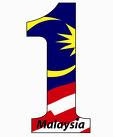Analysis: Obama policy on torture has two sides
Associated Press Writer
WASHINGTON – President Barack Obama is trying to close a chapter in the nation's history that continues to haunt U.S. foreign policy.
Obama authorized the release of graphic "torture memos" that outlined the harsh interrogation tactics the CIA used during the administration of George W. Bush, but getting the abuses behind him is turning out to be more complicated than it may have seemed at first.
The disclosures have divided Obama's administration; some intelligence officials argued against the release. Also, Obama's decision to shield from prosecution those who carried out the practices is being challenged by human-rights activists and some Democrats.
Making the memos public was a victory for Attorney General Eric Holder.
Last July, Holder told a legal forum that the next president must move quickly to "reclaim America's standing in the world." To robust applause, Holder suggested closing the prison camp at Guantanamo Bay and ending "all U.S. programs and practices that are engaged in torture."
Last July, Holder told a legal forum that the next president must move quickly to "reclaim America's standing in the world." To robust applause, Holder suggested closing the prison camp at Guantanamo Bay and ending "all U.S. programs and practices that are engaged in torture."
Much as President Ford's blanket pardon of former President Richard Nixon for Watergate crimes, Obama's decision is being questioned by those who say officials who committed wrongdoing should be held accountable. For instance, Sen. Patrick Leahy, D-Vt., chairman of the Senate Judiciary Committee, was quick to say that the memos only bolstered his argument for a proposed independent commission of inquiry.
Much as President Ford's blanket pardon of former President Richard Nixon for Watergate crimes, Obama's decision is being questioned by those who say officials who committed wrongdoing should be held accountable. For instance, Sen. Patrick Leahy, D-Vt., chairman of the Senate Judiciary Committee, was quick to say that the memos only bolstered his argument for a proposed independent commission of inquiry.
In deciding to release the four memos with little blacked out or otherwise censored, Obama sided with Holder, deputy attorney general in the Clinton administration.
The release went against the advice of other Obama advisers, including CIA Director Leon Panetta. He argued that releasing vivid descriptions of brutal tactics could set a dangerous precedent for future disclosures of intelligence sources and methods.
In fact, the release of the classified Bush-era memos was delayed for nearly a month in part because of strenuous objections from four previous CIA chiefs — Michael Hayden, Porter Goss, George Tenet and John Deutch.
In fact, the release of the classified Bush-era memos was delayed for nearly a month in part because of strenuous objections from four previous CIA chiefs — Michael Hayden, Porter Goss, George Tenet and John Deutch.
Holder said the Justice Department would not prosecute CIA officers "who acted reasonably and relied in good faith on authoritative legal advice from the Justice Department that their conduct was lawful."
Furthermore, the department will represent and pay legal fees for any CIA officers who are sued or who face legal proceedings overseas, Holder said. There are several legal actions taken or in the works against Bush administration officials overseas.
Releasing the memos was the latest chapter in Obama's efforts to make amends for tactics of his predecessor in prosecuting "the war on terror," a term now banished from the White House lexicon.
In his first week in office, Obama revoked all Bush administration legal opinions that had been used to justify harsh interrogation tactics. He outlawed such interrogations and ordered closed secret CIA prisons overseas. He ordered the Guantanamo Bay prison in Cuba to be closed within a year.
Apologizing for past practices was a theme sounded on Obama's recent trip to Europe and the Middle East, where such interrogation and detainment policies had been roundly criticized by leaders of the region.
"I know that the trust that binds us has been strained, and I know that strain is shared in many places where the Muslim faith is practiced. Let me say this as clearly as I can: the United States is not at war with Islam," Obama said in a speech to Turkey's parliament.
James Zogby, president of the Arab American Institute, said Obama's "brave act of transparency must be followed by specific steps to hold Bush administration officials accountable for what they have done."
Sarah Mendelson, director of the Human Rights and Security Initiative at the Center for Strategic and International Studies in Washington, said the Obama administration "moved with stunning speed" in addressing past abuses.
"What people get really hung up about is the next step: whether there are going to be prosecutions, amnesties or commissions," she added. "And that part is going to play out over a long time."
- Associated Press
Keseruan dan Keuntungan Berlimpah dari Bermain Slot Gacor Online
-
Keseruan dan Keuntungan Berlimpah dari Bermain Slot Gacor Online – Di era
dimana teknologi memudahkan segala aspek kehidupan, bermain judi slot kini
tak ...
2 years ago



















No comments:
Post a Comment